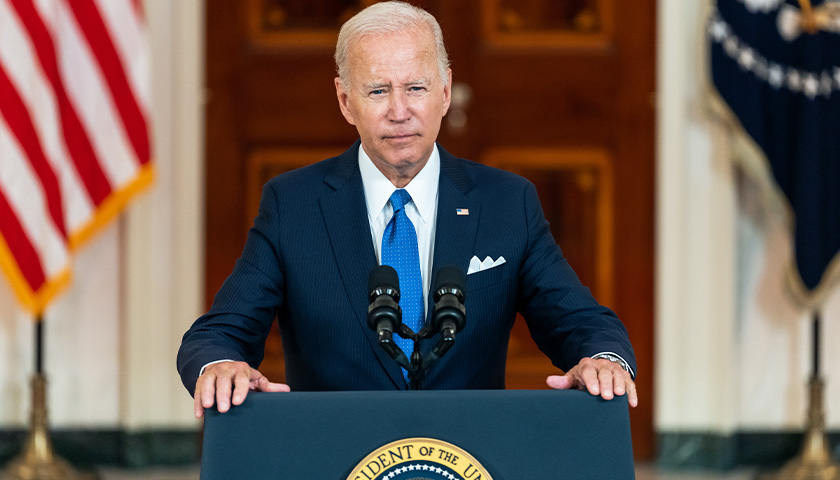Governor Haslam introduced his “revenue neutral” IMPROVE Act (Improving Manufacturing, Public Roads and Opportunities for a Vibrant Economy) late last month.
The proposed bill focuses primarily on increasing the fuel (gas and diesel) tax to fund transportation initiatives and offsetting the increases with other tax cuts.
Under the governor’s proposal, the state tax on gasoline will increase from 21 cents per gallon to 28 cents per gallon. The state tax on diesel fuel will increase from 18 cents to 30 cents per gallon.
Ominously, the tax will be indexed to increase each year based on inflation.
The plan proposes tax cuts of $270 million annually, while increasing revenues through taxes and fees by $278 million this year. The taxing procedure that allows government to receive the same amount of money despite changes in tax law is the definition of “revenue neutral.”
This was a strategic move by the Governor to combat the obvious and predictable opposition to any tax increase given the state’s budget surplus in excess of $1 billion.
But how neutral is the IMPROVE Act for Tennesseans?
At least one group is trying to explain what the gas tax increase would cost the average driver.
The Transportation Coalition of Tennessee is made up of 32 pro-tax increase lobbying groups, some of which are funded through dues paid with taxpayer dollars, and includes AAA, Tennessee Road Builders Association, Tennessee County Highway Officials Association, Tennessee Municipal League, Tennessee Public Transportation Association, Tennessee Trucking Association, American Society of Civil Engineers, Greater Nashville Regional Council, Concrete Paving Association of Tennessee, Tennessee Concrete Association, Tennessee County Commissioners Association, The Associated General Contractors of America and East Tennessee, Home Builders Association of Tennessee.
According to the Coalition’s brochure they have been distributing to state legislators, one cent per gallon gas tax increase is equal to $7.50 annually per driver. At the proposed seven cent increase, that’s a total $52.50 per year per driver. This is supposed to be offset by a 0.5% savings on the state’s portion of the sales tax on food. The USDA’s monthly “Cost of Food at Home” for a family of 2 on a “moderate” cost plan (the third highest of four plans), is $581.20. The annual sales tax savings would be $34.87, putting a 2 driver family behind by $70.13 a year.
Since the average household size in Tennessee is 2.52, this is a realistic scenario for the majority of families. Using the same references, a family of 4 with 2 working people would put that family behind by $42.20 per year over the current tax structure. Families who eat out more often or have more thrifty grocery shopping habits get even further behind.
Perhaps of greater, but so far unquantified, impact to Tennessee households is the diesel tax increase, which will be $0.12 on top of the current $0.17 per gallon. With Tennessee’s current average diesel price of $2.47 per gallon, that’s a 5% increase in the total price of diesel fuel. The diesel fuel tax increase to a total of $0.29 will move Tennessee from the 4th lowest (tied with Missouri) to the 17th highest. What impact will that have on the price of not just groceries, but all other essential and non-essential items that are delivered almost entirely by diesel-powered trucks and trains?
In addition, Tennesseans will see an increase in their annual vehicle registration fees. This is despite the fact that Tennessee Offices of Research and Education Accountability’s report on Tennessee Transportation Funding Challenges and Options indicated that in 2013, just 82% of motor vehicle registration fees actually made it to the highway fund.
Those are just some of the known increases to people of Tennessee. A complete unknown is the future impact of the indexing of the per gallon fuel taxes to the consumer price index (CPI). The IMPROVE Act also calls for counties and cities to implement an entirely new tax to fund local transportation projects. While the new local tax will require a referendum to pass, there has been no discussion as to maximum limits of the tax.
The average Tennessee household will come out on the losing end of the gas tax/food tax trade-off.
Add to that loss the increased costs of all delivered goods and the vehicle registration fees.
Revenue neutral is a political sales pitch from Governor Haslam that came up only after the Tennessee General Assembly started making public comments. Revenue neutral for government doesn’t equate to no impact to Tennessee households. And, that’s the least that should be expected when the state has a historic budget surplus.









If you want to do a real story, then do it on people drawing Social Security. No increase in 2016 because gas prices in 2015. Meaningless increase 2017 mainly due to gas prices in 2016. Did you carefully read what was in the budget and what more money was needed for. There is a whole big story out there for the person with the balls to research and write it. Lay it out in duration and times and content where the average Tennessean can understand it. It’s not just taxes from the State level because the locals going add there’s on. The gas prices are back up above the level that cost Social Security Participants an increase and now pay tax on gas. Better roads create traffic and sales in gas and products. Increase taxed items the amount of tax decrease on those items and improve margins and I mean after all whose is watching. Then pay less excise franchise on that. Do people coming into Tennessee not increase revenue to offset some of the expenses they create. Not according to the politicians that want everything you have. Just as quick as the Federal Government says no tax increase then Tennessee goes for the jugular. Need money to pay State workers more because you have to compete with the new industries coming in that already got a tax break that we pay for. Seems like double taxation somehow. I read that somewhere , but suggest a fact check. If it is one thing that I have learned in the last couple of years is if people aren’t affected or not affected much, then they just really don’t care about right, wrong, constitutional rights or continually over taxation that puts money in the hands of the ones it serves the most.